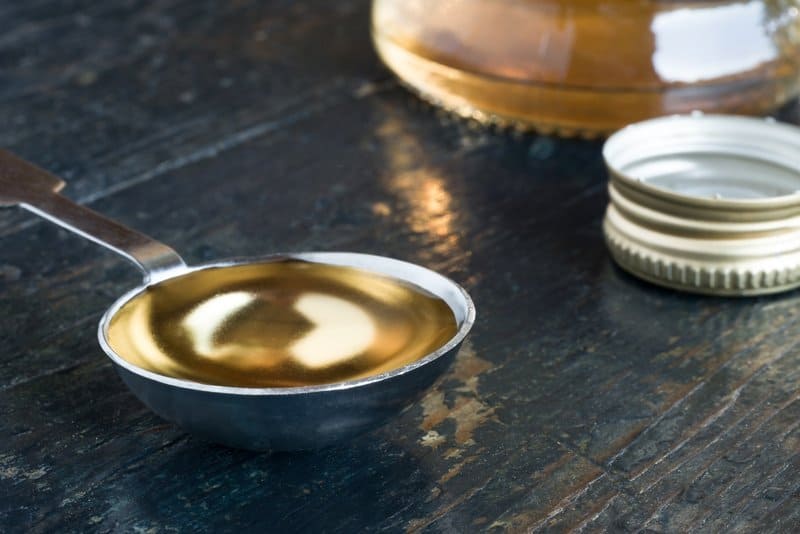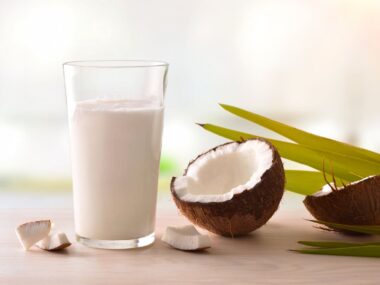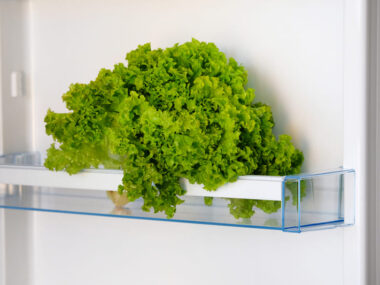If you ever find yourself standing in the middle of the grocery store wondering which bottle of vinegar you should grab, this is for you. Although confusing at first, each vinegar serves its purpose in your kitchen and each will complement a different dish differently.
A common misconception is that white vinegar and white wine vinegar are the same. In fact, they are very different in not only their fermentation process but also the use of them.
What’s the difference between White Vinegar & White Wine Vinegar? White wine vinegar is made through the further fermentation process of white wine while white vinegar or distilled vinegar is made from distilled water and acetic acid. It is basically distilled water that dilutes the acetic acid making white vinegar.
What Is Vinegar
Vinegar starts with fruit, after that it is made into wine or any other types of alcohol from beer to cider. Once you have your ethanol alcohol, you can then add a bacteria culture into it, and this will eat the alcohol.
This is called the fermentation process. What the fermentation process does is break down the by-products. Once the process is complete, you must make sure there is no alcohol left and that your acidity levels are over 5%.
When it comes to white vinegar, this is just distilled water and acetic acid. This is why white vinegar compared to wine vinegar or champagne vinegar has such a strong smell.
What Is the Difference Between All the Vinegar?
Each vinegar has a distinct taste and use, what you may use white wine vinegar for you may not use red wine vinegar in the same way.
This makes each vinegar unique; we made a table that describes the different types of vinegar that will make it easier for you to decipher between the different types.
Although it can be confusing at first having this table with you in the kitchen or even when you’re at the grocery store can help with deciphering which one, you’ll be using for a specific dish.
| Vinegar | Uses of Vinegar When Cooking |
| White Wine |
|
| Red Wine |
|
| Champagne |
|
| Sherry |
|
| Rice |
|
| Apple Cider |
|
What is the Difference Between Pasteurized and Unpasteurized Vinegar?
In the simplest terms, pasteurized means that the vinegar was heated and the “mother” (which is a gooey bacterium that grows in the bottom of the vinegar jar or bottle) was killed. Leaving you with a clear bottle of vinegar.
This is more appealing to the consumer. Unpasteurized will leave the mother in the bottom of the vinegar. Leaving you with a cloudier vinegar. The argument is over whether unpasteurized vinegar keeps all the health benefits to it or if the pasteurization process kills any of the good bacteria in it.
Pasteurized Vinegar Characteristics
- Heated to kill the “mother”
- Clear
- Clean taste
Unpasteurized Vinegar Characteristics
- Still has the “mother”
- Cloudy
Can you use Apple Cider Vinegar Instead of Any Vinegar?
If your recipe calls for white wine vinegar and you find yourself searching every shelf in your home for the white wine vinegar you swore you had, substituting a different vinegar than wine is possible.
The question is, can you use the healing apple cider vinegar instead in your recipe? If you can only find apple cider vinegar in your pantry, then it’s a go. There is a fruity punch to apple cider that you won’t get from other vinegar.
You would use the same amount of vinegar, don’t add more or less than the recipe calls for. Apple cider vinegar is very versatile, it is actually the most versatile vinegar.
Apple cider vinegar is made from fermented apple cider, so if you don’t like apples, this may not be a good substitute for you as it has a small hint of apples. To answer the question, yes, you can use apple cider vinegar to substitute any vinegar.
How to Make My Own Substitutions for Vinegar
Sometimes, we don’t think to have different types of vinegar in the kitchen. It’s often I find myself unable to use some of the different types of vinegar because I only hang on to white wine vinegar or apple cider vinegar.
You sometimes have to make substitutions for your vinegar so that you can continue with your recipe or get what you wanted out of your recipe. Here is a table of the different ways to make substitutions for the different types of vinegar.
| Type of Vinegar | What to Mix |
| White vinegar 1 tbsp |
|
| Sherry vinegar 1 tbsp |
|
| Rice vinegar 1 tbsp |
|
| Red wine vinegar 1 tbsp |
|
| Apple cider vinegar 1 tbsp |
|
Is White Wine Vinegar the Same as White Cooking Wine?
White cooking wine is typically just your regular “cheap” wine that you find at the grocery stores. It would be your run-of-the-mill wine that doesn’t have anything about it that is special.
Typically, you would use the last end of a wine bottle that may have been sitting in the fridge for a few days, or a wine you didn’t like but didn’t know what to do with. Cooking wine is something you could drink while cooking with it. It is in the sense of the word wine.
White wine vinegar is a bit different. The vinegar comes from the wine. It is fermented wine that has been oxidized and has bacteria that have eaten all of the alcohol from the wine.
Although the two can often be confused, because if you leave a bottle of wine in your cellar opened for long enough it will become vinegar.
Sometimes there can be a cross over between the two of them, and often people assume if you leave your cooking vinegar in the pantry or cellar long enough you can use it as wine vinegar, which is not always true.
This all depends on the stage of fermentation the cooking wine is at. The best bet is to always test the cooking wine before you assume, they would work the same and can be substituted.
Can I Use Cooking Wine Instead of Wine Vinegar?
When you look at the recipe and it’s asking you to add wine vinegar, it may be difficult to substitute it for cooking wine. This is because you will be using something acidic when using wine vinegar. If you’re looking to substitute it the other way, you may have better luck. Especially if the purpose is for deglazing your pan.
Often people are looking for a non-alcoholic solution for their recipes. This could be due to religion or from not having alcohol in the home. Using wine vinegar to substitute cooking wine is the best way to do it.
Next time you go to the grocery store, think about the different types of vinegar available. Grab a few and experiment with them. Sometimes you may find a new ingredient to add to your dishes.
You may even enjoy a bit of white wine vinegar on your French fries instead of the standard white vinegar. The only way to find out if you enjoy something is if you test it!
Can Wine Vinegar Spoil?
Most things in your cupboard have a best before date whether we abide by those dates are to each their own. Sure, maybe you will lose some of the flavors or won’t be as strong in the case of vinegar as it would be if you were to use the vinegar before the best before date.
To increase the shelf life of wine vinegar, keep the bottle in a dark cool place, and make sure the seal is always tightly sealed. Over time, and by the time we mean years, you will see a breakdown of color as well as taste.
An option to keep the wine vinegar longer is to keep it in your fridge. If it’s a staple in your kitchen and you plan to use it over a few months, you won’t need to keep it refrigerated. Just make sure your seal is tight and you keep it in a dark place.




1 comment
Hi do you have to refrigerate home made hot sauce i have read conflicting post thank you